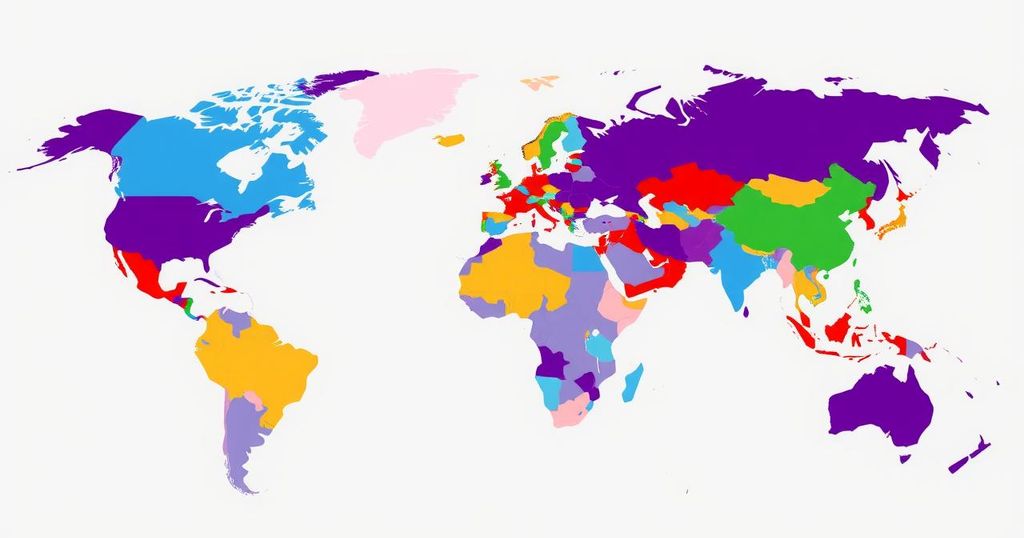The Trump administration is considering a broad travel ban targeting citizens from 43 countries, with a “red” list including 11 nations barred from entry, an “orange” list for restricted travel, and a “yellow” list for nations required to improve deficiencies. Ongoing diplomatic considerations and implications for existing visa holders remain uncertain as the proposal develops.
The Trump administration is contemplating a new travel ban that could impact citizens of 43 nations, surpassing previous restrictions during his initial term. A draft list has emerged, proposing a “red” list of 11 countries—namely Afghanistan, Bhutan, Cuba, Iran, Libya, North Korea, Somalia, Sudan, Syria, Venezuela, and Yemen—whose citizens would be outright prohibited from entering the U.S.
Discussions are ongoing within the State Department and other agencies regarding the accuracy of the listed deficiencies in these nations and whether diplomatic considerations might necessitate alterations to the list. An “orange” list has also been drafted, which includes 10 countries: Belarus, Eritrea, Haiti, Laos, Myanmar, Pakistan, Russia, Sierra Leone, South Sudan, and Turkmenistan. Travelers from these nations would face restricted access, primarily affecting those on tourist or immigration visas, alongside mandatory in-person interviews for visa approval.
Trump’s executive order issued on January 20 mandates the identification of countries with inadequate vetting procedures, proposing a report to the White House by next week. The Bureau of Consular Affairs is leading this initiative, while Justice, Homeland Security, and intelligence agencies support the assessment. Although officials have not commented publicly, the State Department indicates its commitment to maintaining national security standards through its visa processes.
While Afghanistan, now under Taliban control following U.S. withdrawal, is expected to be included in the new travel ban, several other proposed nations raise complex diplomatic questions. Bhutan’s inclusion lacks clear rationale, while targeting Russia contradicts Trump’s aim to foster better U.S.-Russia relations. Additionally, including Venezuela poses risks to evolving diplomatic ties useful for migration matters.
A “yellow” list of 22 countries has also been proposed, which would be given 60 days to address perceived deficiencies or risk being moved onto stricter lists. Countries such as Angola, Cambodia, and Zimbabwe are included on this list, reflecting concerns over their cooperation in sharing traveler information and security practices.
Previous travel bans during Trump’s first term faced significant legal challenges, yet a revised version was ultimately upheld by the Supreme Court. In contrast, President Joe Biden promptly revoked these bans upon taking office, labeling them as detrimental to U.S. values. Trump has since indicated plans to reinstate travel restrictions to protect American citizens from potential threats, aiming to reinforce immigration laws against perceived malicious intent.
The potential new travel ban proposed by the Trump administration could affect citizens of 43 countries, with distinct “red,” “orange,” and “yellow” classifications based on perceived security deficiencies. While coordination among government agencies is underway, various factors complicate the inclusion of certain nations. The initiative follows a pattern of previous travel bans, with Trump’s administration focused on national security, despite contrasting views from the current administration.
Original Source: risingnepaldaily.com






